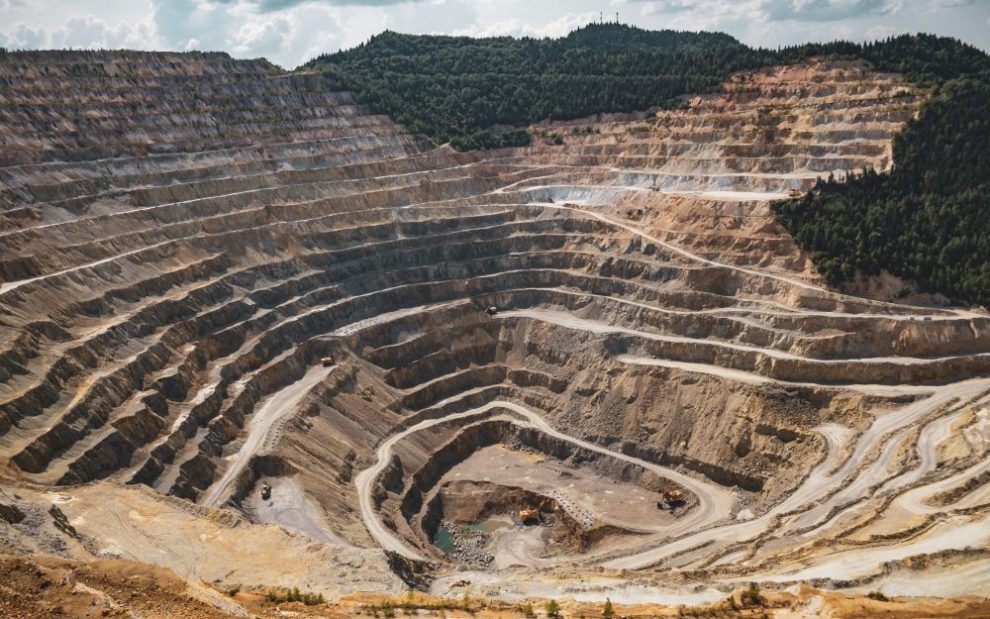It’s hard to find anyone who has anything against Canadians. In our cultural imagination, they remain the hemisphere’s unfailingly decent folk. But our polite neighbors to the north harbor a small secret—a good percentage of their vaunted social welfare system is paid for by an industry that has been responsible for some of the worst ecological and human rights violations of this century. Over decades, Canada has quietly become a global mining juggernaut, and mining can be a singularly messy business.
Canada’s domestic mining sector employs more than 700,000 people and in 2019 contributed $109 billion to Canada’s economy. It’s not hard to see why even a self-described progressive leader such as Justin Trudeau tends to remain silent about the noxious impact of Canada’s mining conglomerates. But Canadian firms are also busy throwing up earth in Asia, Africa, and across Latin America. Our northern neighbor is home to almost half of the world’s public mining companies.
Much of the miraculous gadgetry that mediates modern life is run on minerals such as coltan and lithium that Canadian firms extract under concessions with friendly governments or through joint ventures with local mining concerns, but Canada’s mining conglomerates also cling to still-lucrative legacy mining licenses in gold, copper, and other metals and minerals. Extracting those commodities is frequently the source of ecological and social conflict.
Indigenous and ecological advocates have frequently been targeted after raising objections to mining, especially in Latin American nations where mining interests are socially and politically well-connected. In 2022, Global Witness reported that at least 177 people were assassinated after speaking out to protect land, water, and Indigenous territory from mining, logging, and other commercial interests. At least eight of those murders were directly associated with anti-mining activism. In 2021, mining was the sector most associated with activist slayings, with 27 deaths.
In Panama tensions came to a head in November 2023 when two people were shot to death by an irate driver caught behind a roadblock thrown up by demonstrators protesting special treatment for Vancouver-based First Quantum Minerals Ltd. The company had been given clearance to continue operations for the next two decades at a massive open pit copper mine. Weeks of protests preceded the shooting, and one other protestor had been run over and killed at a different roadblock just days earlier.
Canada’s bishops have demanded more scrutiny of Canada’s global miners, and the bishops’ organization Development and Peace – Caritas Canada sponsors a long-running campaign, “Stand for the Land,” to keep the issue before the Canadian public. Advocacy group MiningWatch Canada is dedicated to exposing contradictions between Canada’s esteem for human rights and its collaboration with mining interests. The organization presses for legal remedies meant to prevent mining corporations from profiting from weak protections for the environment, workers, and Indigenous people in host countries.
The protest in Panama was begun by environmentalists and Indigenous people, but the cause was soon taken up by average Panamanians furious with corruption and their government’s cozy relationship with mine operators. The Panamanian Supreme Court ruled the government’s contract with First Quantum unconstitutional on November 28, 2023.
That may prove a rare victory against powerful mining interests. It may also prove a brief one. First Quantum asked on December 1 that the matter be put to binding arbitration under the terms of the Canada-Panama Free Trade Agreement. But if greater awareness of the impact of mining on local ecologies and Indigenous communities can be raised, perhaps more citizen-led victories will follow.
This article also appears in the February 2024 issue of U.S. Catholic (Vol. 89, No. 2, page 42). Click here to subscribe to the magazine.
Image: Pexels/vlad-chețan















Add comment